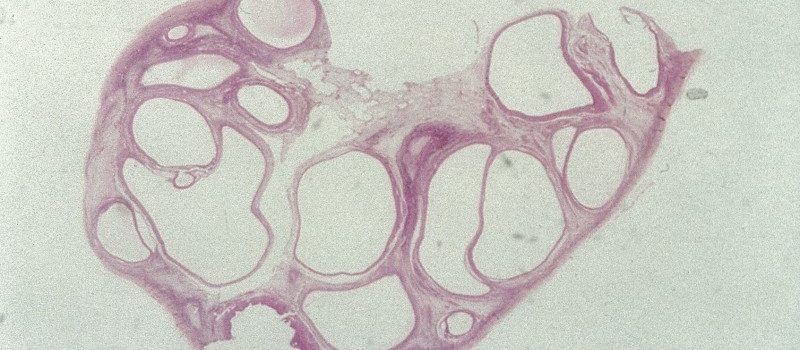In the largest genome wide association study (GWAS) into polycystic ovary syndrome (PCOS) to date, new research conducted by scientists at the University of Cambridge and ten other institutions, including 23andMe, has identified genetic variants and causal links associated with PCOS, some of which might be relevant to informing positive lifestyle and treatment choices for women.
Published today in the journal Nature Communications, this study looked at genetic information from more than 200,000 women.
Dr John Perry, of the Medical Research Council (MRC) Epidemiology Unit at the University of Cambridge, and study co-lead, said:
We estimate that one in every five women in the UK have polycystic ovaries and therefore research such as this is critical to advance our understanding and help us to better tackle the disease. Not only did we find new genetic markers for PCOS, and confirm some linkages seen in previous studies, but our analyses also help us to understand the underlying biology of the disease in more detail.
The study found that the risk of PCOS was increased by genetic variants that are known to act by increasing body mass index (BMI) and insulin resistance. The findings indicate that therapies that counteract these mechanisms could be beneficial in women with PCOS.
Study co-lead Dr Ken Ong, of the MRC Epidemiology Unit, said:
Previous studies had suggested that weight loss has only partial benefits for women with PCOS, we recommend that new studies should be done to test whether more intensive efforts to reduce body weight and improve insulin resistance are effective in treating women with PCOS.
In additional to these causal links, the study also identified new genetic variants that implicate three of the four epidermal growth factor receptors, which are known targets of some modern cancer therapies. This opens up new avenues of research into future treatments in PCOS.
Another new variant identified in the FSHB gene (which encodes the beta subunit of ‘follicle stimulating hormone’ FSH), indicates that low levels of FSH may also contribute to the development of PCOS.
PCOS is a condition that impacts how a woman’s ovaries work. It is thought to be very common, affecting millions of women in the UK. It is a leading cause of fertility problems and is also associated with an increased risk of developing health problems in later life, such as type 2 diabetes and high cholesterol.
The researchers used genetic information from more than 5,000 women of European ancestry who are 23andMe customers, reported having PCOS and consented to research. The study also included another 82,000 women customers of 23andMe who also consented to research but do not have the condition. Those women were used as controls for the study.
Researchers also did follow up in 2,000 other women, whose PCOS had been clinically validated, and another 100,000 women without the condition. Those women were studied by the Icelandic company deCODE, by researchers at the Erasmus Medical Center in the Netherlands, and also at the Center for Human Genetic Research at Massachusetts General Hospital in Boston, USA.
- Read the paper: Causal mechanisms and balancing selection inferred from genetic associations with polycystic ovary syndrome, Nature Communications.

 MRC Epidemiology Unit
MRC Epidemiology Unit